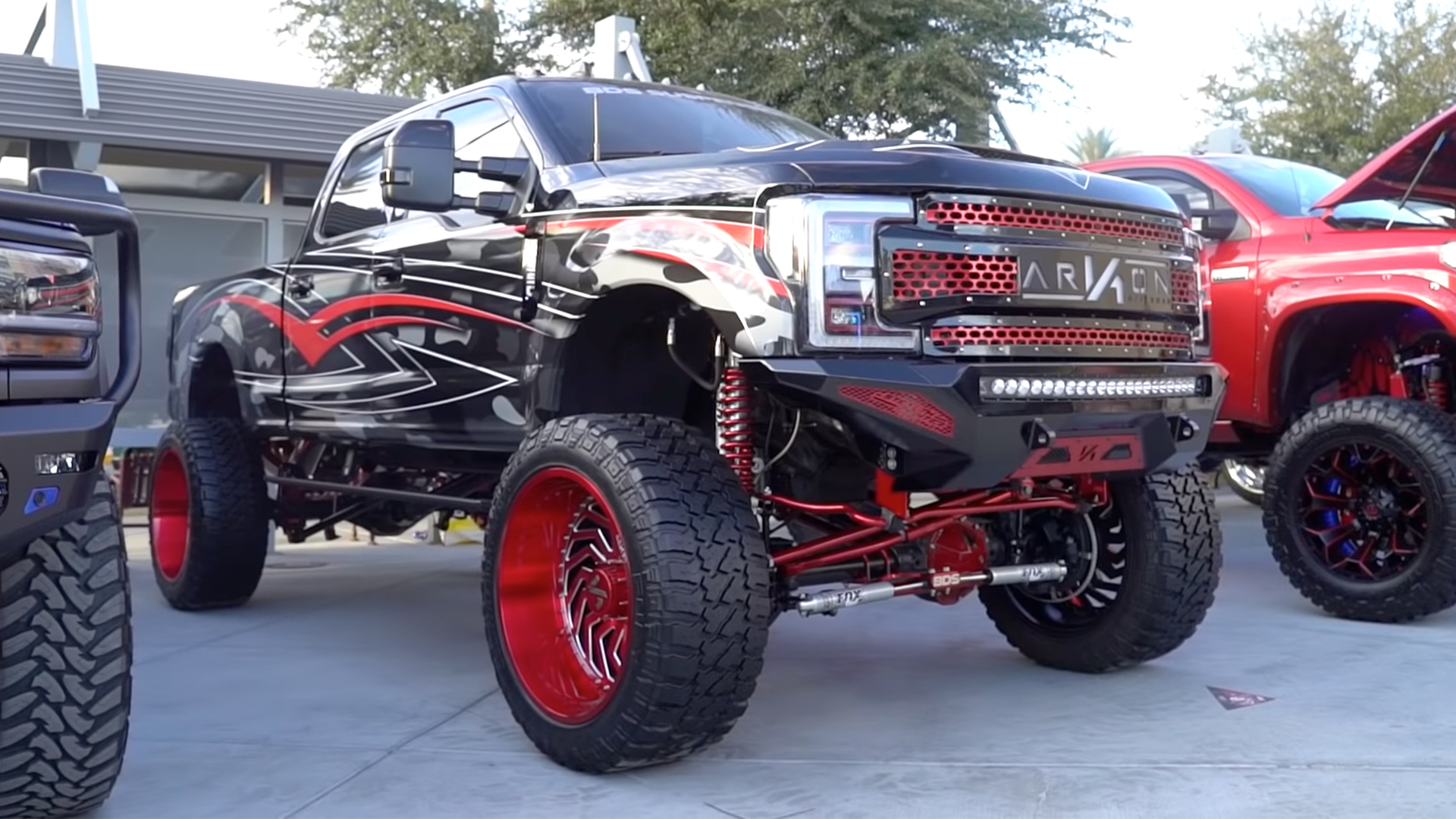

Down in Arizona, there’s a fight unfolding between the U.S. Environmental Protection Agency and diesel truck tuner Gear Box Z, which has been targeted as part of the EPA’s ongoing war against anything it considers an “emissions defeat device.” It’s not a feud GBZ will face alone, though, because earlier this month, SEMA—that’s the Speciality Equipment Market Association, the group behind the eponymous annual trade show—entered the fight on GBZ’s side as part of a larger campaign to preserve America’s aftermarket vehicle industry.
The roots of this confrontation can be traced back just over five years to when the EPA’s interpretation of the Clean Air Act expanded the criminalization of tampering with emissions controls to non-road-legal vehicles like dedicated off-roaders and race cars. The apparent end of the EPA’s longstanding apathy toward de-catted purpose-built vehicles like race cars alarmed those within the aftermarket performance and motorsport industries, where some faced having their livelihoods legislated into nonexistence, at the same time confusing those with a solid grasp of the climate problem at large.

Race cars’ on-track environmental impact, after all, is overshadowed by the process of transporting them around a country (or the globe), not to mention dwarfed by the problems of maritime pollution and the popularization of SUVs. Even some members of Congress believed motorsport was a fish too small to be worth frying, which is why—under pressure from SEMA—they introduced the Recognizing the Protection of Motorsports (or RPM) Act in December 2019. Designed to amend the CAA, the RPM Act outlined emissions exemptions for select non-street vehicles, namely those “to be used solely for competition.”
Despite passing a House Committee, the RPM Act has yet to pass either the House or Senate. In the time since the measure’s introduction, the EPA has taken aggressive action against businesses who sell or have sold anything it considers a “defeat device,” from TV hosts to exhaust and tuning shops, like Arizona’s Gear Box Z.
GBZ was attributed in the EPA’s Jan. 3, 2020 filing with Arizona’s U.S. District Court as a source of “EGR Delete Hardware,” “Exhaust Replacement Pipes,” “DPF Emulators,” and “Defeat Tune Products” from Jan. 1, 2015, to April 24, 2017. The first two products on that list remain
available on GBZ’s site at the time of publishing. In the company’s listing for said “Exhaust Replacement Pipes,” GBZ notes that they are intended for race vehicles.


It’s worth noting that on GBZ’s online storefront, its programmers are currently listed as being “designed to be a fully reversible and temporary DPF maintenance tool for trucks equipped with DPF filters.”

Other diesel aftermarket companies have faced big-time suits from the U.S. federal government as of late, including EZ Lynk this past week. Their cited offenses are similar to that of GBZ’s, producing and selling equipment that enables diesel trucks to operate without their emissions systems and therefore spew excessive harmful pollutants.
The line here is murky since some consumers still use these types of devices on their ordinary road vehicles. This gives the EPA ammo against companies like GBZ who manufacture and sell products for “off-road vehicles” that end up on America’s highways, undoing the work of automakers’ emissions-compliant exhaust setups.
The sale of GBZ components already contributed to the termination of Bradenton, Florida-based Freedom Diesel Performance, which in June 2019 filed for bankruptcy after receiving
$7 million in citations from the EPA. Seven months later, the agency sued the source of the equipment itself in GBZ’s home U.S. District Court in Arizona, in a suit that has now dragged on 14 months. Earlier in March, SEMA threw what weight it could behind GBZ by filing an amicus brief, a document that lets it as a third party provide the court with additional subject-matter expertise. Its filing, readable here, challenges the EPA’s pursuit of “enforcement of anti-tampering for certified motor vehicles converted to dedicated racing vehicles,” arguing the CAA does not authorize the EPA to do so.
SEMA’s protest, however, is of questionable relevance to the court. Its filing protests the EPA’s jurisdiction over off-road emissions controls, whereas the EPA’s lawsuit is concerned with their manufacture in the first place. The agency’s takedown of Freedom Diesel Performance in Florida didn’t establish an applicable legal precedent, but it does show how effective the EPA has been at enforcing its stance on emissions equipment.

GBZ’s best hope for survival seems to be the RPM Act passing Congress, and reestablishing the right to sell its products for non-road use—a privilege the EPA informally rescinded in 2015 despite no change of law. In pursuit of this, SEMA and its ally Performance Racing Industry
renewed their campaign for Americans to contact their Congressional representatives, and push them to pass the RPM Act. Should it somehow break through Congressional deadlock and take effect before Arizona reaches its verdict, though, it won’t necessarily mean an end to the EPA’s fight. It could mean, however, that the next step would be to appeal to a higher, national-level court, which could set a countrywide precedent.
This fight is far from over, and one worth paying attention to whether you’re a supplier of exhausts and tunes, or merely a consumer of them.
Got a tip or question for the author? You can reach them here: james@thedrive.com